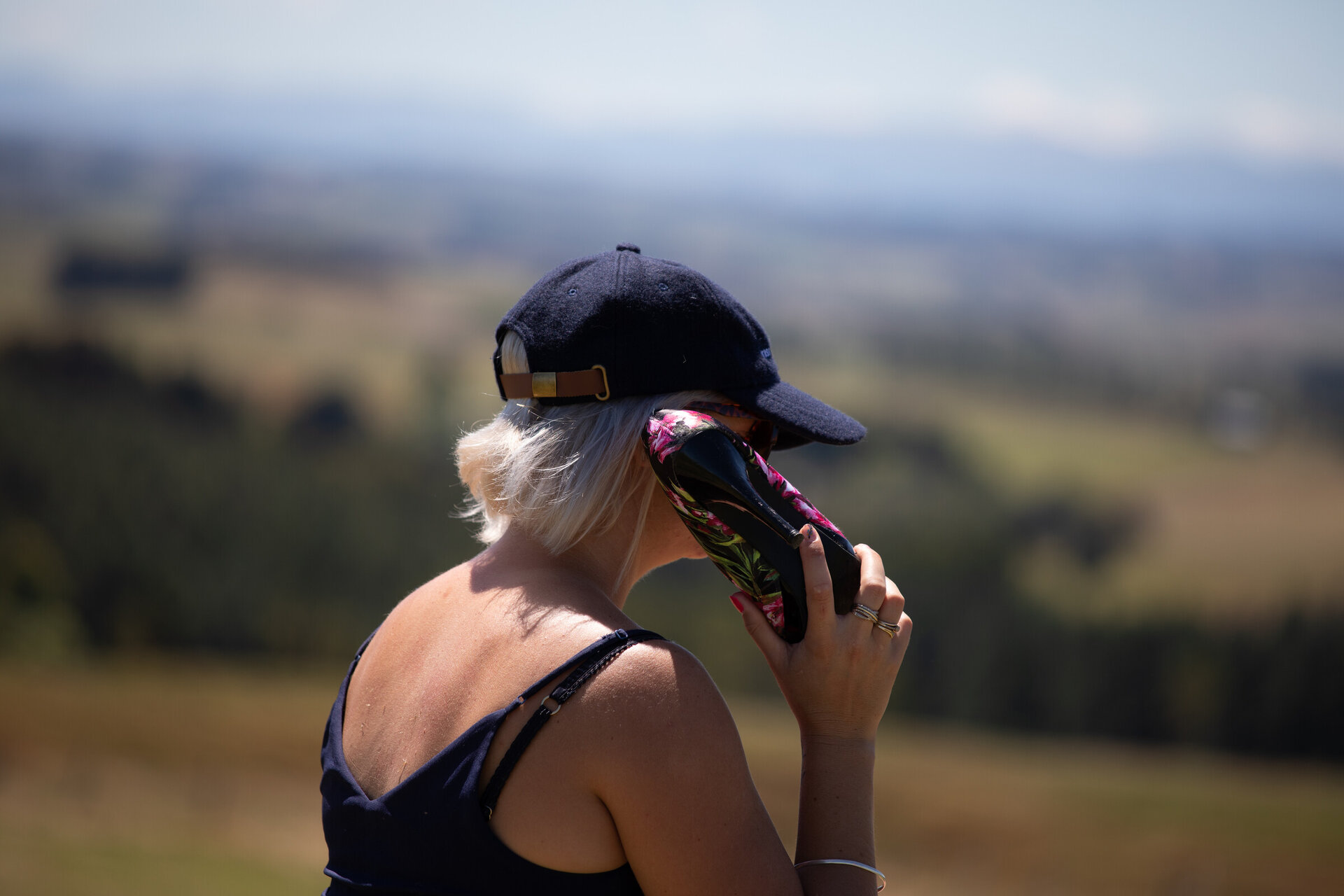Chelsea was fortunate enough to be asked to speak at this years ASB Rural Corporate conference in Auckland.
The theme was 'Human Capital' with my direct focus on 'disruptive technology.'
The conference was over a day and a half and was a mix of ASB customers/farmers and ASB Rural Corporate/employees from across NZ.
For someone who has a group of sub-contractors working for her and no direct employees, I did question what I knew about Human Capital.
I thought a little outside the square and drew on my involvement in managing volunteers through NZ Young Farmers. That coupled with my experience in disruptive technology I thought gave me enough qualifications to talk about Human Capital.
My perspective was how Disruptive Technology, namely social media, can help to enhance Human Capital in our sector by creating stronger, more visible communities.
When at the conference I asked how many people didn't have Facebook. I got the shock of my life when around 50% of the room put up their hands. Needless to say my presentation tacked a little to the left after these results!
I discussed a three points:- How your brand can benefit from being online
- How you as a farmer can utilise online communities and
- How an ASB Rural Manager can add value to their customer relationships through regular community activities, using an incentivised technique called gamification.
Benefits of having your brand online
Just like any other marketing platform, being present online allows you to communicate your offerings to your audience. However, there is much more to being online then just 'being present.'
It's a whole new blog if I were to write about the benefits of being online but in relation to 'disruptive technology' and human capital it presents you with a HUGE opportunity to give your brand a voice.
A human voice.
Social media allows you to give your brand a human voice, join and create conversations you once were never able to do and of course gain instant feedback.
In summary you need to focus on the three C's and execute them well:
- Connect - connect with industry partners, influential contacts in your industry, connect with your community.....and regularly!
- Curate - don't make it all about you. No one likes that friend who talks only about themselves so why do this as a brand, personality or corporate, in a 'social environment?'
- Communicate - answer everybody. Good, bad or ugly comments. Answer all communications directed at you or on your timelines. If you went up to someone and said 'Hello' and they blankly starred at you back not answering, what kind of feeling does that create for you? Don't be that person online.
Remember we're all about community and culture. Be visible to your community, engage them in your business operation and start to build them into your culture.
Ultimately without them you have no business at all!
Utilising your online communities
Social media has multiple strong agricultural communities online: NZ Farming, Farming Mums NZ, Dairy Women's Network to name a few.
By being part of a community it can reduce the feeling of loneliness and geographical isolation while on farm. You form bonds between other like-minded people who you can share techniques, industry news and other information with, that can help further your knowledge and help you become a better business owner.
You form bonds with people and have conversations you may never have been able to have before.
Some of the farming community don't capitalise enough on showing their appreciation for how beautiful the places they live and work really are. By sharing with others what is involved in their day to day lifestyle or operation, it's building their personal brand, maybe even their business brand and contributing to our NZ Primary sector story.
Let's do more of this so we can showcase to our now somewhat disconnected urban cousins just what real farm life is all about!
How to be a community focused Bank Manager
When it came to creating greater communities ASB's Rural team has a really big opportunity to front foot the snowball.
Now I'm writing about this opportunity in an open forum so their unfair advantage has gone. So here's hoping if they're implementing a strategy they've got it sorted by now!
I referenced an idea I'd recently heard about, around the use of Google Hangouts to really engage with your community.
It's a free service where 10 participants can be on a call at once.
My suggestion was to set up a one hour session and break it into two parts.
The first 30min discussion would be about what's on the horizon for the bank, any opportunities they had to offer this particular audience and any sector insights they wished to share.
The second 30min would be spent engaging with the community. Get to know them, ask what's planned for the coming week, how the family's doing, yarn about the recent All Blacks result etc. Just have a general yarn.
Whatever it is - it's all about them.
It's about building stronger relationships with your greater community.
They'll start to bond and make connections of their own with other participants. Therefore building an even more engaged, connected and sharing community.
"Did you know? 80% of our Millennial population are disconnected from farming. 80% don’t know where their food comes from." — Tracy Houpapa
They'll thank you for it later!
We need to get sharing. We need to get educating.
We can do more to correct this but who will start the initiative?
We all spoke a common language at the ASB Conference. We all spoke about a common theme, Human Capital. However, another theme emerged strongly from the conference. That theme was culture.
We need to share our culture. In my opinion rural New Zealand has one of the best cultures in the world. Stop worrying about the tall poppy syndrome we Kiwis are so scared of and start sharing our story.
Go on, I dare you to take control!
There might just be one sticking point. Our traditional culture, which is very strong in rural New Zealand, is not enough to attract the Millennial talent to our sector.
As an employer you've got to be seen as 'cool.' You've got to have connectivity, provide the Millennials with the latest gadgets on farm and most of all allow them to have a life:work balance.
For Gen Y and younger they want to be able to be visible and share every aspect of their lives on social media.
Employment options without connectivity are not appealing at all. Each and every person wants to be heard....and instantly!
No longer is the smell of lanolin on your skin, the feeling of being exhausted after an honest, hard days work enough for the next generation.
Tracy made yet another valid point:
'To get the next generation into leadership roles they want to have a voice and be involved but they don't want the Chairman roles.'
So...
What do you think?
Personally I think we need to change our way of thinking.
This mind shift starts with you.
You behind the farm gate.
Chelsea Millar is the Owner of Grass Roots Media NZ and co-founder of the seminar series Rural Voice. When she's not tweeting and flitting from location to location you can find her behind a camera or being active.




